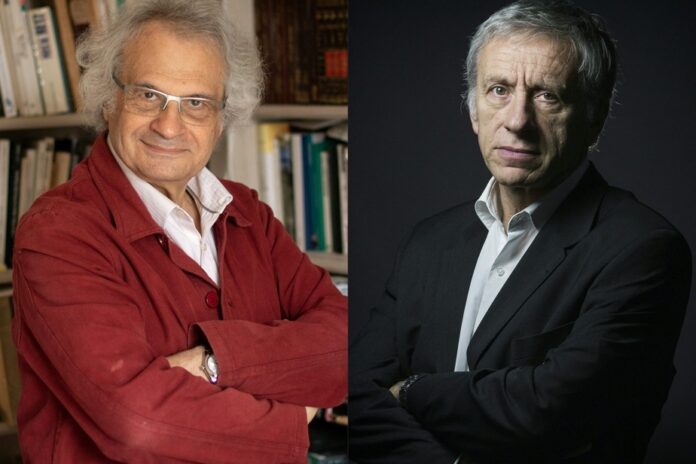(Paris) Two writers who won the prestigious Goncourt Prize, Amin Maalouf and Jean-Christophe Rufin, are seeking the leadership of the Académie française, the institution that has guarded the rules of the French language since its foundation in the 17th century.
The vote to designate the successor of Hélène Carrère d’Encausse, who died in August, is scheduled for Thursday afternoon, according to simple procedures: only votes for one of these two men will be counted.
When applications closed on Monday evening, there were two, a member of the administrative commission told AFP on Tuesday.
Amin Maalouf, a 74-year-old Franco-Lebanese writer who won the 1993 Goncourt Prize for The Rock of Tanios, has been a declared candidate for some time. A figure in the historical novel of oriental inspiration who devoted his work to the rapprochement of civilizations, he is seen as the favorite.
His personality is unanimously unanimous, he is very involved in the activities of the institution where he joined in 2011, and he has the advantage, among other things, of being seen as a permanent secretary who would have pleased Hélène Carrère of Encausse, great specialist in Russia.
Amin Maalouf will have to face a friend, Jean-Christophe Rufin, a 71-year-old former diplomat and 2001 Goncourt Prize winner (Red Brazil). This trained doctor has been at the Academy since 2008.
This one, less consensual, hesitated before finally launching. “At first tempted to give up, I came to the conclusion that our great cause deserves some sacrifices,” he wrote in his application letter, quoted by the daily Le Monde.
He had let it be known that he found it frustrating to have only one candidate. “It’s North Korea,” he declared, quoted on Saturday by M magazine, a supplement to the major French daily Le Monde.
This weekly reported that another academician, Marc Lambron, had led an active campaign against him in recent months, accusing him of a lack of independence.
Jean-Christophe Rufin, who is multiplying his activities, in fact submitted a report in May for the oil group TotalEnergies on the situation in Mozambique. And since 2020 he has chaired the Sanofi Espoir Corporate Foundation, from the pharmaceutical group.
The permanent secretary of the French Academy is the member who directs this institution responsible for defending and promoting the French language. There have only been 32 people to hold this position since 1634.
In July, the “immortals” completed the examination of the words of the 9th edition of the Dictionary of the French Academy, almost twice as numerous as in the 8th.
Ms. Carrère d’Encausse, who joined in 1990 and was elected head of the institution in 1999, will remain “the” perpetual secretary – she insisted on the masculine, arguing that “there has only been one perpetual secretary for three centuries and a half” – which made the French Academy take the turn towards the internet.
Although contested by many linguists for its conservatism, the Academy dictionary is a valuable tool for following the evolution of the French language. All of its editions are available online for free.
For his successor, one of the crucial tasks will be to ensure financial sustainability, which according to a report from the Court of Auditors on the Institut de France in 2021 is not assured.
The other will be to attract worthy candidates to don the “green coat”. Hélène Carrère d’Encausse has in fact not always been successful in her attempts to attract or have the applications of younger and popular writers approved. Michel Houellebecq did not respond to his calls, and authors like Frédéric Beigbeder or Benoît Duteurtre were rejected.
The Academy has 40 seats, with 28 occupied by men and seven by women. Five others are vacant, awaiting elections.















